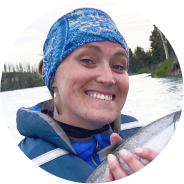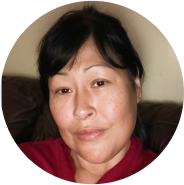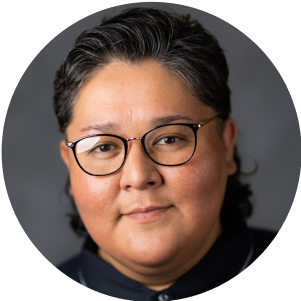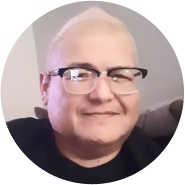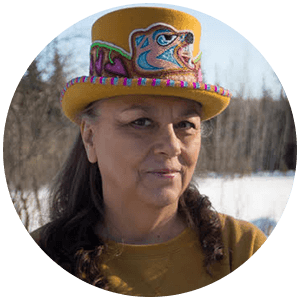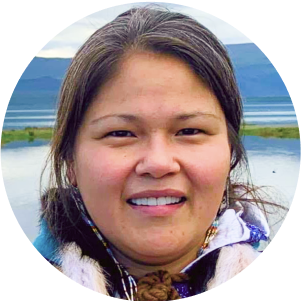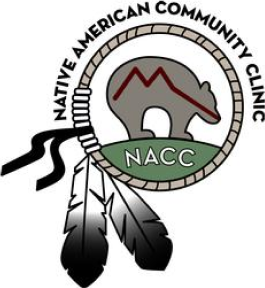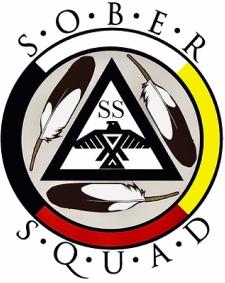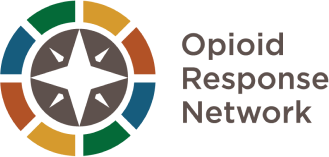Resiliency is in our blood.
This is an unprecedented opportunity to invest in solutions to address the needs of American Indian and Alaska Native people, families and communities impacted by the opioid crisis.A new kind of settlement.
New funds are now available to federally-recognized tribes, through the tribal opioid litigation settlements. These tribal settlement funds will provide opportunities to support ongoing opioid-related work led by tribal communities, including prevention, harm reduction, and treatment efforts.
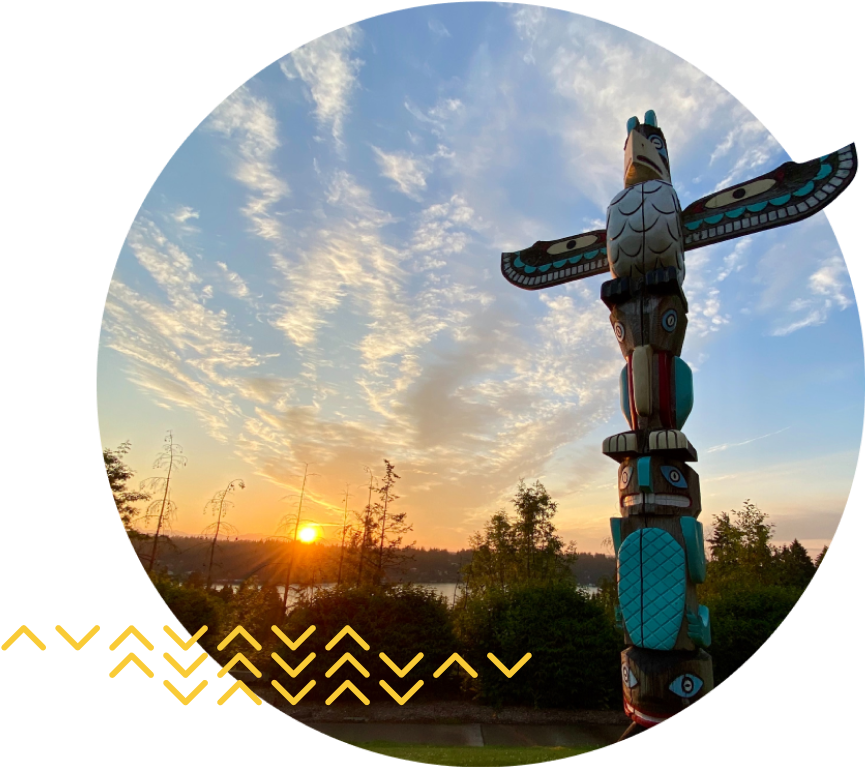
A new kind of settlement.
New funds are now available to federally-recognized tribes, through the tribal opioid litigation settlements. These tribal settlement funds will provide opportunities to support ongoing opioid-related work led by tribal communities, including prevention, harm reduction, and treatment efforts.

Our Principles
Our goal is that the Tribal Principles and resources on this website are useful to tribes and Indigenous-serving organizations across the US in the spending of tribal opioid litigation settlement funds.
Our intention is for these Principles to include and reflect the needs of all American Indian and Alaska Native (AI/AN) Peoples who may benefit from these settlement funds, inclusive of diversity across different ages, sexes, gender identities, sexual orientations, religions, disabilities, geographic locations, socioeconomic circumstances, and health statuses.
For decades, tribes have been supporting community members who use opioids through efforts that are often underfunded, scarcely resourced and under-unacknowledged. New funds are now available through the tribal opioid litigation settlements. These tribal settlement funds will provide opportunities to support ongoing opioid-related work led by tribal communities, including prevention, harm reduction, and treatment efforts. The funds may also stimulate new programs, policies, services and research that will meet the needs of communities, families, and individuals affected by the opioid crisis.
“We are on a healing journey together: The path of the healing journey has been started and we are changing for the better.”
– Indigenous Advisory Committee Member
Culture first: Support cultural and traditional healing in your community.
Invest in reciprocal learning and partnerships across tribes.
Healing support for families: Invest in parent, caregiver and Elder resources.
Sustain and enhance substance use services for youth.
Create opportunities for holistic well-being.
Who We Are
The materials on this website were developed through collaborative discussions with an expert Indigenous Advisory Committee, through a series of listening sessions with Indigenous and allied researchers, tribal leaders, service providers, and tribal community members throughout the United States, and from scholarship and practice experiences of our core Tribal Principles Project Team of Indigenous researchers.
Tribal Principles Project Team
We would like to extend our gratitude toward those who have contributed to this project and previously sat on the Core Project Team and the Indigenous Advisory Committee, including Caelin Marum, Carly Marshall, Corey F. Hinton, and Adrienne Leddy.
What are the tribal opioid settlements?
The Tribal opioid settlements are also known as ‘opioid payouts’, and are funds that tribes will be receiving from opioid manufacturers and distributors.
Why are tribes receiving their own settlements?
Rates of overdose amongst Native Americans in the United States have been increasing since 2000, and opioid overdoses within Native American/Alaska Native communities continue to be disproportionally high (AASTEC, n.d.; CDC, 2022). This has resulted in devastating impacts on families and communities in tribes across the US. In turn, tribes have spent already-stretched resources on addressing the opioid overdose crisis, including investments in health care, social services, child welfare, law enforcement, other government services, and more (Estus, 2022). Tribal legal teams have been successful in advocating for tribes to participate in the opioid settlements to seek funding to remedy some of these impacts. Tribes were excluded from the historic Big Tobacco settlements in the 1990s, despite the fact that tribal health data was used in the negotiations between the state and tobacco companies (Hoffman, 2022; Locke, 1999). Given this history and these unique challenges, supporting tribal autonomy in creating, investing in and supporting existing programming and services is pivotal to addressing this growing issue.
How can my tribe be involved in this process?
Tribes and tribal legal teams may apply for the opioid settlements by submitting a Tribal Participation Form, found under the ‘Settlements’ tab on the Tribal Opioid Settlements website (the website that hosts information on the legal process and distribution of funding); each settlement has a separate Tribal Participation Form (e.g. Teva/Allergen, Walmart, etc). Law firms and unrepresented tribes may submit Tribal Participation Forms using the secure online portal, which is also located on the top bar of the Tribal Opioid Settlement page. If you are not sure if your tribe has submitted a Participation Form, please check in with your tribe’s leadership team. All federally recognized tribes are eligible to participate in the Tribal Opioid Settlements, regardless of whether a Tribe filed an opioid lawsuit.
Do tribes have any limitations on how they can spend their funding?
Yes. While the ‘authorized activities’ that tribes can partake in under the settlements are broad and respective of the needs of the unique 574 Federally recognized tribal communities, the money received “must be spent for tribal programs, services and activities to address the opioid crisis in that tribe’s community” (tribalopioidsettlement.com, 2022). The Tribal Opioid Settlement website features a list of activities that tribes can enact under Approved Uses, Schedule B and D. Schedule B includes three main sections: treatment, recovery and other strategies. Examples of these actions include treatment of opioid use, supporting people in treatment and recovery, connections to care, support for appropriate prescription of opioids/prevention of over-prescribing, prevent overdose deaths and other harms (harm reduction), training and research.
Schedule D of the Approved Uses document provides tribes with additional actions, and include traditional activities associated with cultural identity and healing, culturally competent integrated treatment models, culturally grounded community prevention, peacekeeping and wellness courts, and community workforce development and training.
When will tribes receive the funding?
The funds are beginning to be distributed for tribes that have submitted their Tribal Participation forms and payment instructions: this announcement regarding the distribution of funds was made on March 22, 2023. The settlements total well over $1 billion and will be distributed over the next 15 years. The Directors of the Tribal Abatement Fund Trust (“TAFT”) are working on distributing the funds to each participating tribe. There will likely be an additional payment before the end of 2023, and it is anticipated that future payments will be made on an annual basis.
The majority of the payments will be distributed according to the Tribal Allocation Matrix. For more information, please see the Tribal Allocation Order No. 1 and Tribal Abatement Fund Trust Notice to Tribes found on the Tribal Opioid Settlement website. Directors of Tribal Abatement Fund Trust will ask tribes to certify that they have used the funds in alignment with the Approved Uses, so that they can provide assurance to the court that the settlements are functioning as intended.
Who created the Tribal Principles?
The creation of the Tribal Principles was guided by the Indigenous Advisory Committee (IAC), comprised of diverse Indigenous experts from across the US who work with Indigenous people who use substances. Each IAC member has extensive personal, professional and experiential knowledge in the areas of substance use, addiction, and harm reduction, and brought their experiences, wisdom and knowledge to co-creating and guiding the creation of the Tribal Principles. Additionally, information and feedback on the Principles was gathered through a series of listening sessions with Indigenous and allied researchers, tribal leaders, service providers, and tribal community members throughout the United States, and from scholarship and practice experiences of our core Tribal Principle Project Team of Indigenous researchers.
How can I provide feedback on these Tribal Principles?
The Tribal Principles and associated list of examples of activities are evergreen, which means that they can be adapted over time to meet the changing needs of communities. We appreciate and welcome feedback from tribal community members, leaders, and service providers. The Tribal Principles serve as considerations for tribes when making decisions around funding, and we intend for them to support tribal community health planning. Feedback, questions and comments can be sent to: tribalprinciples@jh.edu
Where can I go for more information?
For more information, please refer to the following resources:
- www.tribalopioidsettlements.com
- Tribal Opioid Use Disorders Prevention Resources from Seven Directions Center for Indigenous Public Health
- Gwayakobimaadiziwin Bad River Harm Reduction
- Expanding the Circle of Care: A Practical Guide to Syringe Services for Tribal and Rural Communities
- Harm Reduction Services in Native Communities from the National Council for Mental Wellbeing
- A Trickster Tale- Outsmarting Opioids Through Education and Action from the Northwest Portland Area Indian Health Board: Tribal Opioid Response
- Indigenous Harm Reduction = Reducing the Harms of Colonialism from the Interagency Coalition on HIV/AIDS and Development/Canadian Aboriginal AIDS Network
- Connecting to Culture – a three-part video series about Indigenous harm reduction
- Real Stories: Stevie Rae. focusing on CDC Rx Awareness
Gathering Grounds
Indigenizing Opioid Litigation Settlements, Pt. I and II: In these special sessions of Gathering Grounds: An Indigenous Community of Public Health Practice, Andrea Medley...
Indian Country Echo
Trickster Spirits and the Opioid Response: Cultural Considerations in Addressing Substance Misuse: In this presentation, Dr. Danica Love Brown, Behavioral Health Manager ...
Midwest Tribal Echo
Harm Reduction is Traditional: Mo Mike presents on the 7 Grandfather teachings of the Anishinaabe and how they can inform and support the principles of harm reduction in ...
National Opioids Settlement
This website provides copies of the general litigation agreements, as well as additional documents and information concerning these settlements. The site was created and ...
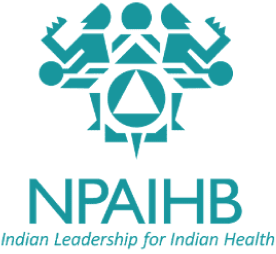
Northwest Portland Area Indian Health Board

Established in 1972, the Northwest Portland Area I...
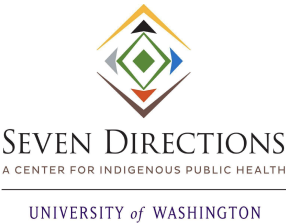
Seven Directions: A Center for Indigenous Public Health

Seven Directions is the first national public heal...
The Family Spirit Home Visiting Program
An evidence-based and culturally tailored home visiting intervention delivered by Native American paraprofessionals as an Indigenous solution to supporting caregivers dur...
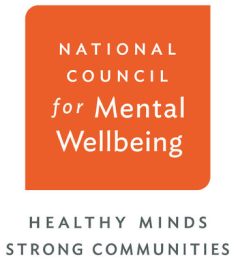
The National Council for Mental Wellbeing

Founded in 1969, the National Council for Mental W...
Tribal Opioid Settlements
This website contains information about the tribal opioid litigation settlements and how Tribes may participate and receive settlement funds....
Free TA for Native Harm Reduction
Free drop-in technical assistance held over Zoom every Wednesday at 1pm. Hosted by Skoden Native Harm Reduction Services.
March 2024 Newletter – Tribal Principles
NHRC Native Harm Reduction Toolkit
This toolkit been informed by Tribal and Urban Native people from across California and brings together resources from Indigenous harm reduction leaders from across the country and beyond.
7D Indigenous Social Determinants of Health
This site brings together ISDoH related resources and a six-module training to share in your communities. The material and resources we share center Indigenous perspectives and views on health, healing, and well-being. This training will allow public health practitioners to reevaluate social determinants of health from an Indigenous lens.
Tribal Principles – Quick Guide to Conducting a Needs Assessment
The Tribal Principles support tribal communities to use opioid settlement funds to supplement and invest in opioid abatement work that is driven by community needs across the 574 federally recognized tribes throughout the United States. Using opioid settlement funds to conduct a local needs assessment is a powerful option for determining how to disburse these limited resources for maximum impact and longer-term planning.
Tribal Principles Booklet
IHS Opioid Stewardship
The Indian Health Service (IHS) Opioid Strategy supports holistic, patient-centered care that incorporates the physical, emotional and spiritual needs of each individual patient. A strong patient-provider relationship that respects American Indian/Alaska Native (AI/AN) culture and tradition through shared-decision making is an important component in developing a treatment plan. IHS aims to reduce stigma while promoting culturally-sensitive, appropriate, and effective best practices related to opioid stewardship and substance use disorders, including evidence-based treatment, recovery support, primary prevention, and other harm reduction strategies.
NIHB Tribal Opioid Response Resource Toolkit
There has been a lot of attention and funding provided to the national opioid epidemic within recent years, especially the devastating impact it can have in Tribal communities. The collective intent of these funding opportunities is to reduce opioid related deaths in Tribal communities by implementing activities such as strategic plans, prevention and education medication assisted therapy, different forms of treatment, workforce development activities, community recovery support, and so forth. This Tribal Opioid Response Resource Toolkit provides an array of materials, tools, resources and links to support Tribes as they are working to combat the epidemic within their communities.
7D Harm Reduction Technical Assistance
Seven Directions provides free technical assistance (TA) to Indigenous-focused organizations working to address Opioid and Substance Use in their communities. We support a wide range of organizations, including Tribal health programs, Urban Indian organizations, Tribal colleges, and more.
NPAIHB Tribal Boarding School Toolkit for Healing
In January 2023, Northwest Portland Area Indian Health Board (NPAIHB) and Indian Health Services (IHS) contracted with Kauffman and Associates, Inc. (KAI) to develop an electronic toolkit for teachers, public health professionals, mental health professionals, tribal administrators, and public safety professionals. The toolkit is intended to be a brief, reader-friendly resource with information on the historical trauma resulting from Indian boarding schools in the United States. This team conducted a literature review, spoke to boarding school survivors and descendants, consulted with individuals and organizations working in the field of American Indian and Alaska Native (AI/AN) healing and resilience, and collaborated with educators to develop this toolkit.
Tribal Principles: Indigenous-Centered Perspectives on the Tribal Settlement Funds
In this webinar, we discuss the Tribal Principles, which offer culturally-relevant, Indigenous-centered guidance for tribal leaders to consider when creating their spending plans for use of the tribal opioid settlements. The Tribal Principles were created with the guidance of an expert Indigenous Advisory Committee, with feedback from Indigenous and allied researchers, tribal leaders, service providers, and tribal community members at listening sessions held throughout the United States, as well as from scholarship and the practice experiences of the core Tribal Principles Project Team of Indigenous researchers. Andrea Medley (Haida Nation), is a lead member of the core Tribal Principles Project Team and a researcher at the Center for Indigenous Health. This didactic session will teach you how to use the Tribal Principles to inform and shape your reporting and help you walk away with stories you can take on today.
Kroger to Pay Millions to Indigenous Communities for its Role in the Opioid Crisis
Kroger is part of a growing list of drug companies ordered to pay millions to the state governments and Indigenous communities for their role in the opioid crisis. Andrea Medley (Jaad ahl' Kiiganga), a research associate at the Johns Hopkins Center for Indigenous Health, is interviewed.
Center for Indigenous Health Launches Guide for Spending Tribal Opioid Settlement Funds
A new website launched by the Center for Indigenous Health at Johns Hopkins Bloomberg School of Public Health aims to guide tribes in spending funds from the tribal opioid litigation settlements.
National Association of Counties (NACo) Strategy Briefs
To help counties assess and prioritize the many approved uses of opioid settlement funds, NACo worked with a team of advisors to identify 25 high-impact strategies that are under county authority. For each of these 25 strategies, NACo is developing concise briefing documents customized to county government. Each brief focuses on a specific opioid abatement strategy and summarizes the available evidence, best practices for implementation, county examples and links to additional resources, including opportunities for specialized technical assistance. Briefs will be continuously released on this page.
Deaths of Despair and Indigenous Data genocide
"Native American communities have had substantially higher midlife mortality, and mortality from deaths of despair, across all years of available data. These inequities have worsened considerably over time. Nevertheless, the narrative of overdose, suicide, and alcoholic liver disease as White American problems— tied to economic disinvestment from working class White areas and related loss of social status—has reached widespread prominence as an explanatory framework in academic and popular press literature. Yet this core idea of the uniqueness of White people being at greater risk to these causes of death, was only made possible by the erasure of data describing Native American mortality (p.1)."
Connecting to Culture: Indigenous Harm Reduction Video Series
First Nations Health Authority/Vancouver Health Authority. (2023)
Indigenous Evaluation Toolkit
Seven Directions, with the support of the Centers for Disease Control & Prevention and the National Network of Public Health Institutes, has produced an Indigenous Evaluation Toolkit. This Toolkit provides step-by-step guidance, worksheets and concrete examples to support communities looking to Indigenize and decolonize their program evaluation.
Providing Harm Reduction Services in Native Communities
Experts from the field, Philomena Kebec, Mo Mike and Hannah Warren, led the discussion with a group of harm reductionists who serve Native participants. Four key considerations for providing harm reduction services in Native communities emerged and are discussed in this brief: • Provide staff education and training on Native culture, history and cultural care. • Implement trauma-informed, resilience-oriented care. • Address stigma through fostering trust and respect. • Prioritize and center the work of Native people and organizations in harm reduction.
Indigenous Evaluation 101 Guidebook
Existing training and resources on evaluation are widely available, but guidance on how to conduct evaluation that honors the culture and strengths of Indigenous communities is often missing. This Guide was developed to help the State of Minnesota, Indigenous organizations, and others to recognize the steps and considerations necessary to design and implement an evaluation that considers Indigenous ways of knowing. The Guide contains concrete tips and tools, and includes links to other resources. This Guide is not meant to be the only resource a reader would need to conduct an Indigenous evaluation, but rather to be a starting point for thinking about how to ensure evaluations are appropriately measuring the successes of Indigenous projects and programs.
Models of Tribal Promising Practices Tribal Opioid Overdose Prevention Care Coordination and Data Systems
This report was prepared by Seven Directions, A Center for Indigenous Public Health to describe four promising practices that tribes are using to address opioid overdose. The four approaches include harm reduction, integrated health care, peer support and a multi-pronged harm reduction & integrated health care approach.
A Trickster Tale: Outsmarting Opioids Through Education and Action
The Northwest Portland Area Indian Health Board created this booklet describing how we can look to stories of Trickster to think about how opioid misuse can similarly sneak into our communities and result in opioid use disorders for our people.
An Environmental Scan of Tribal Opioid Overdose Prevention Responses: Community-based Strategies and Public Health Data Structure
This report was prepared by Seven Directions, A Center for Indigenous Public Health at the University of Washington, in order to document scientific literature and publicly available web-based information on tribal opioid overdose prevention. This publication describes several innovative responses as well as shared challenges such as racial misclassification of AI/AN in surveillance and mortality data, data collection and capacity, and clinical-community care coordination.
Public health responses to the opioid crisis in North America
Harm Reduction Policy Brief: Indigenous Harm Reduction = Reducing the Harms of Colonialism.
ICAD/CAAN (2019)
American Indian Higher Education Consortium’s Indigenous Evaluation Framework
LaFrance, J., & Nichols, R. (2009). Indigenous evaluation framework: Telling our story in our place and time: Written for the American Indian Higher Education Consortium. AIHEC.
Nov 12 – Nov 15, 2025
Huntington Place Convention Center, Detroit, MI
2025 International Drug Policy Reform Conference
Funding Acknowledgement
This project was funded by Bloomberg Philanthropies as a part of the Bloomberg Overdose Prevention Initiative, a collaborative partnership aimed at combating the nation’s opioid epidemic by identifying gaps in treatment and prevention programs, identifying novel approaches and tools, and providing evidence-based guidance and interventions.







